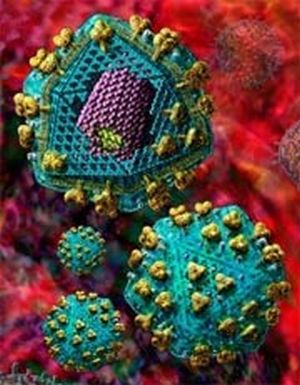Perron H, Dougier-Reynaud HL, Lomparski C, Popa I, Firouzi R, Bertrand JB, Marusic S, Portoukalian J, Jouvin-Marche E, Villiers CL, Touraine JL, Marche PN. Human endogenous retrovirus protein activates innate immunity and promotes experimental allergic encephalomyelitis in mice. PLoS One. 2013 Dec 6;8(12):e80128. doi: 10.1371/journal.pone.0080128.
Multiple sclerosis (MS) is a complex multifactorial disease of the central nervous system (CNS) for which animal models have mainly addressed downstream immunopathology but not potential inducers of autoimmunity. In the absence of a pathogen known to cause neuroinflammation in MS, Mycobacterial lysate is commonly used in the form of complete Freund's adjuvant to induce autoimmunity to myelin proteins in Experimental Allergic Encephalomyelitis (EAE), an animal model for MS. The present study demonstrates that a protein from the human endogenous retrovirus HERV-W family (MSRV-Env) can be used instead of mycobacterial lysate to induce autoimmunity and EAE in mice injected with MOG, with typical anti-myelin response and CNS lesions normally seen in this model. MSRV-Env was shown to induce proinflammatory response in human macrophage cells through TLR4 activation pathway. The present results demonstrate a similar activation of mouse dendritic cells and show the ability of MSRV-Env to trigger EAE in mice. In previous studies, MSRV-Env protein was reproducibly detected in MS brain lesions within microglia and perivascular macrophages. The present results are therefore likely to provide a model for MS, in which the upstream adjuvant triggering neuroinflammation is the one detected in MS active lesions. This model now allows pre-clinical studies with therapeutic agents targeting this endogenous retroviral protein in MS.
In rats and marmoset, EAE can be induced in animals using myelin antigen in Freund's incomplete adjuvant (something that promotes immune response generation) which is Freunds complete adjuvant without the mycobacteria. In this study they put a component of human endogenous retrovirus in the adjuvant with myelin and EAE developed. They suggest that this will give them a model to study the role of targeting retrovirus. This may be the case but studies of anti-HERV are in advanced development as is the Charcot project so is it past the point of animal studies.
